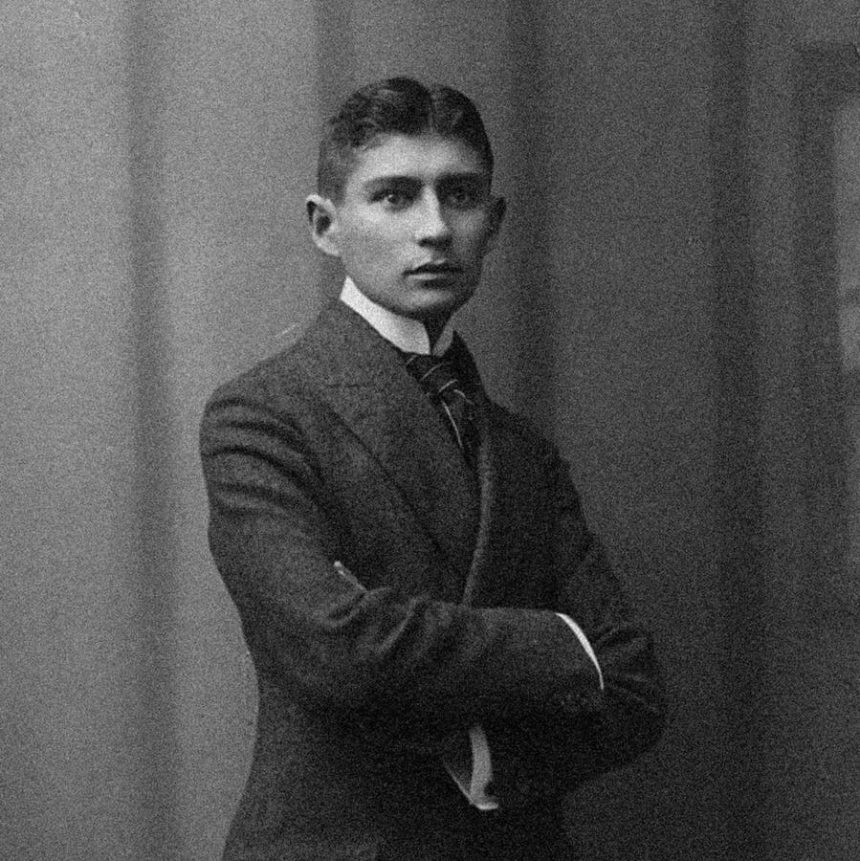Franz Kafka, a prominent literary figure of the early 20th century, etched his name in the annals of literature through his distinctive exploration of existential themes, bureaucratic labyrinths, and the pervasive absurdity of the human condition. His works, often imbued with a nightmarish quality, delve into the psychological depths of characters grappling with isolation, guilt, and the oppressive weight of societal structures. Kafka’s writing, characterized by a blend of realism and the grotesque, resonated deeply with readers and continues to influence modern literature, carving a unique space for his signature style, often referred to as "Kafkaesque."
Despite his prolific output, Kafka remained a harsh self-critic, reportedly destroying several manuscripts and expressing dissatisfaction with his work. Ironically, his posthumous fame soared thanks to his friend Max Brod, who defied Kafka’s wishes to destroy his remaining writings and instead published them, introducing the world to the full extent of Kafka’s literary genius. Kafka’s literary legacy comprises three major novels, a wealth of short stories, and other fragmentary works, each offering a unique glimpse into his complex and often unsettling worldview. While he grappled with self-doubt during his lifetime, his works have become cornerstones of modern literature, offering enduring insights into the human condition.
Among Kafka’s most celebrated works are his novels The Metamorphosis, The Trial, and The Castle, along with his collection of short stories. The Metamorphosis, perhaps his most iconic work, follows the tragic transformation of Gregor Samsa into an insect, exploring themes of alienation, family dynamics, and the dehumanizing effects of societal isolation. The Trial plunges the reader into a nightmarish world of bureaucracy and legal proceedings, where Josef K. is arrested and prosecuted for an unknown crime, highlighting the absurdity and oppressive nature of seemingly impenetrable systems. The Castle, Kafka’s final, unfinished novel, depicts the frustrating struggle of a land surveyor, K., to gain access to the enigmatic Castle, further emphasizing Kafka’s preoccupation with bureaucracy and the elusive nature of truth and authority.
The Complete Stories of Franz Kafka offers a comprehensive collection of his shorter works, showcasing his mastery of the form and his ability to condense complex themes into concise and impactful narratives. Stories like "The Hunger Artist," "In the Penal Colony," and "A Country Doctor" exemplify Kafka’s skill in crafting allegorical tales that resonate with readers on multiple levels, exploring the darker aspects of human nature and the existential dilemmas of the modern age. These stories, while shorter than his novels, offer a concentrated dose of Kafka’s thematic concerns and stylistic brilliance.
Another notable, albeit unfinished, work is Amerika, originally titled The Man Who Disappeared. This novel follows the journey of Karl Rossmann, a young man exiled to America after a scandalous affair, presenting a satirical and often surreal portrayal of American society. Though unfinished, Amerika offers a unique perspective on Kafka’s evolving writing style, demonstrating a lighter tone compared to his other works, while still maintaining his signature exploration of alienation and the search for identity in a bewildering world. It also reveals Kafka’s fascination with travel narratives, albeit filtered through his own unique and often darkly comedic lens.
Across these works, Kafka’s writing probes the anxieties of modern existence, capturing the alienation of the individual within an increasingly complex and impersonal world. He portrays the struggle against oppressive forces, both internal and external, and the frustrating search for meaning in a world seemingly devoid of logic or reason. His characters often find themselves trapped in bureaucratic mazes, grappling with guilt and a sense of inadequacy, reflecting the anxieties of an era marked by rapid social and technological change.
Kafka’s ability to tap into these universal themes, combined with his distinctive prose style and his masterful use of symbolism and allegory, has cemented his place as one of the most influential writers of the 20th century. While he may not have fully appreciated his own genius during his lifetime, his works continue to resonate with readers today, offering a profound and unsettling reflection on the human condition. The "Kafkaesque" atmosphere he created has permeated modern literature and culture, becoming synonymous with the absurd, the bureaucratic, and the nightmarishly complex realities of modern life.
His exploration of themes such as alienation, guilt, and the search for meaning in a seemingly indifferent universe continues to resonate with readers who grapple with similar existential questions. The enduring power of Kafka’s work lies in its ability to capture the anxieties of the modern age, offering a bleak yet compelling vision of the human condition. His fragmented narratives, often left unfinished, mirror the fragmented nature of human experience itself, leaving readers to grapple with their own interpretations and confront the unsettling truths that Kafka lays bare.
Despite the pervasive sense of despair and absurdity that permeates his works, Kafka’s writing also possesses a strange and compelling beauty. His precise prose, his meticulous attention to detail, and his ability to create vivid and unforgettable images contribute to the lasting impact of his stories. The very act of reading Kafka becomes an experience in itself, drawing the reader into a world that is both familiar and unsettlingly strange.
Moreover, Kafka’s enduring appeal lies in his ability to evoke a sense of empathy for his characters, even in their most grotesque or absurd situations. We recognize in their struggles a reflection of our own anxieties and insecurities, our own battles against the forces that seek to define and confine us. Whether it’s Gregor Samsa’s transformation into an insect or Josef K.’s bewildering trial, Kafka’s characters embody the universal human experience of feeling lost, alienated, and at the mercy of forces beyond our control.
In conclusion, Franz Kafka’s literary legacy is one of profound impact and enduring relevance. His works, from the iconic Metamorphosis to the chilling Trial and the enigmatic Castle, continue to challenge and provoke readers, offering a unique and unsettling perspective on the human condition. His exploration of existential themes, his masterful use of symbolism and allegory, and his distinctive prose style have cemented his place as one of the most important and influential writers of the 20th century. While he may have doubted his own worth as a writer, his works have become essential reading for anyone seeking to understand the complexities and anxieties of the modern age.



